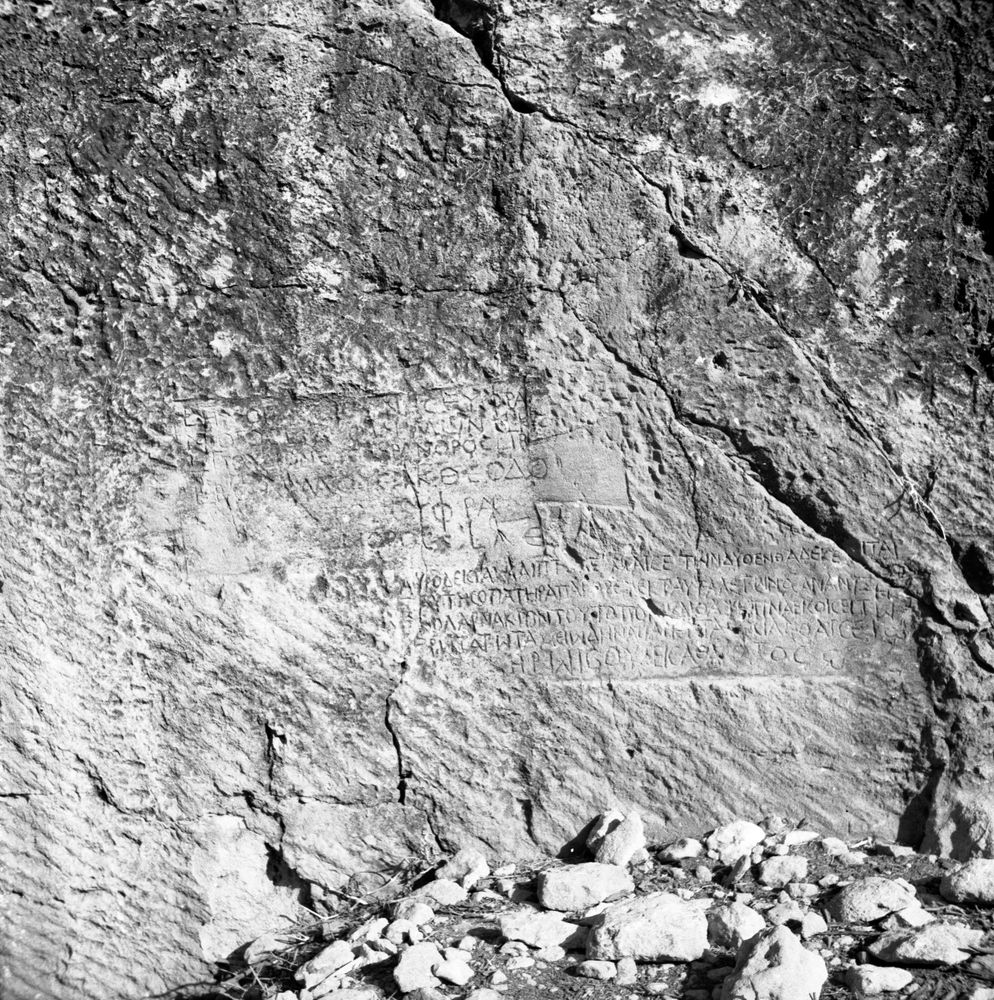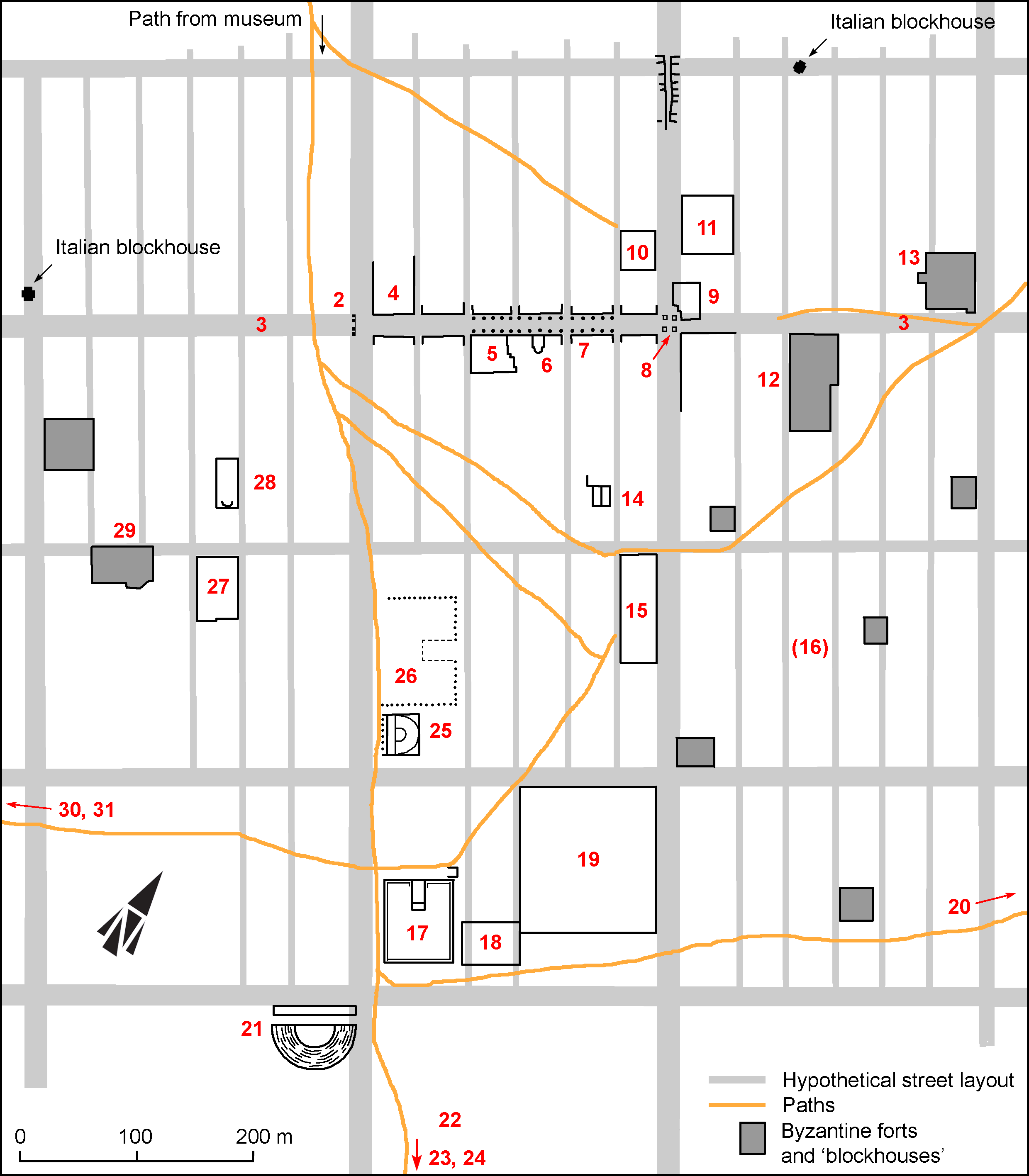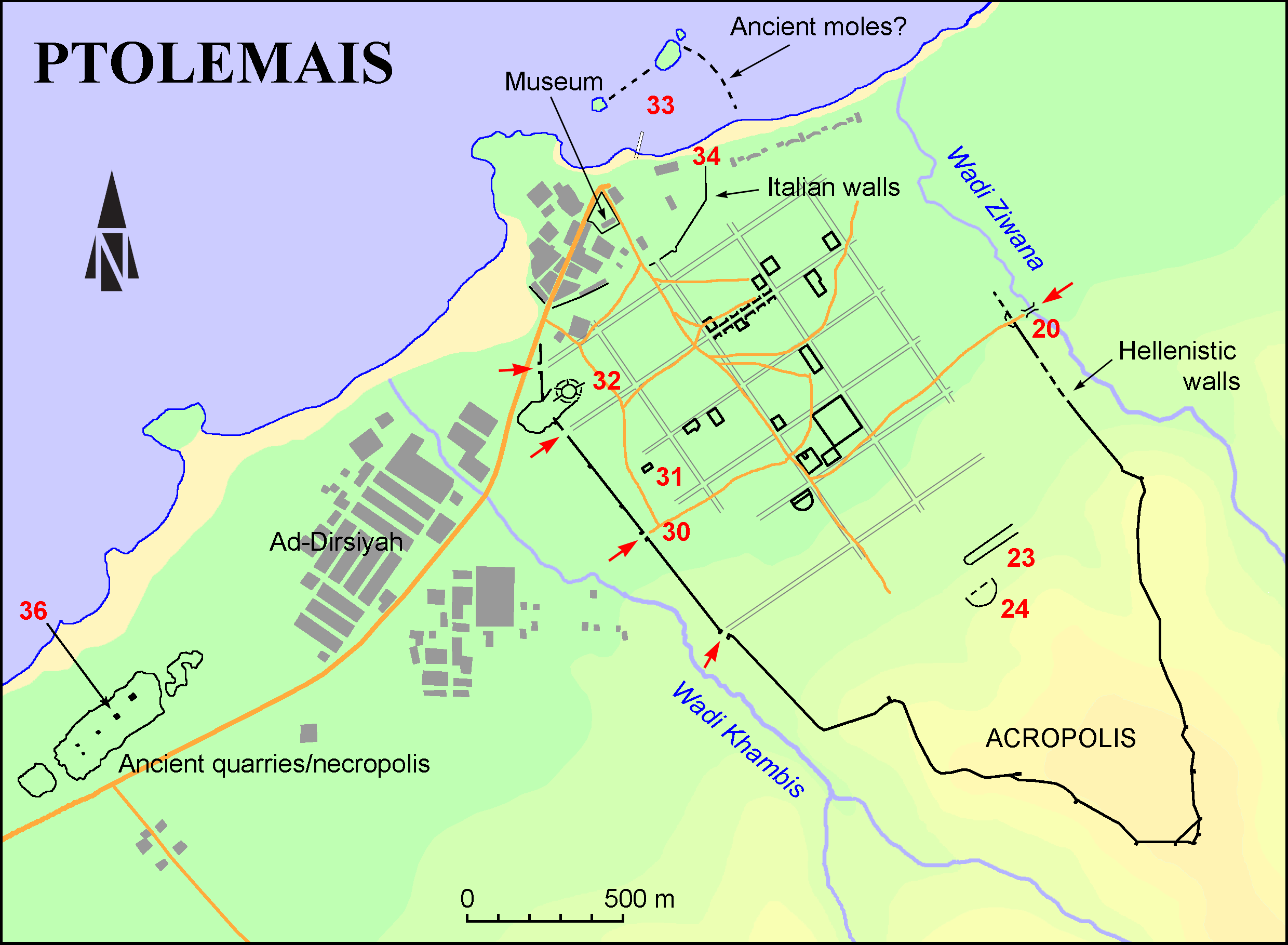EpiDoc XML:
GVCyr0432
Trismegistos ID:
105963
Source description
Support: Rock-cut tomb, inscribed on the facade, with inscriptions IRCyr2020 P.267, IRCyr2020 P.268, IRCyr2020 P.269, IRCyr2020 P.270.
Layout: Inscribed on the facade, below IRCyr2020 P.269, within a rectangular panel (w: 1.00 × h: 0.25).
Letters: 0.03; lunate epsilon, lunate sigma, W-shaped omega.
Date: First to third centuries AD (lettering).
Findspot: First copied by J.-R. Pacho in 1825 at Ptolemais ➚: Quarry 1, sector c, North wall.
Place of origin: Findspot.
Last recorded location: Seen by H. De Cou in 1911 in situ. Seen by J.M. Reynolds at an unknown date in situ at Tulmaytah, Quarry 1. Not seen by GVCyr team.
Text constituted from: Transcription from previous editors and J.M. Reynolds' notebooks (CDL).
Bibliography
Pacho 1827, pl. LXXVIII (printed as LXXIX) and p. 403 (Letronne), whence CIG 5200.b; IGRR I.1026; Robinson 1913, pp. 196-197, whence Sammelbuch 5939; GVCyr 043 ➚. Cf. Lüderitz – Reynolds 1983, n. 32.d, whence SEG, 33.1468.
Text
Apparatus
1: Ἀφροδεισία Lüderitz – Reynolds 1983: Ἀφροδείσα Robinson 1913 || Ἀφροδεισία ἡ καὶ Πτο̣λ̣εμαΐς Robinson 1913 De Cou's reading: α' [ἔτ]ο<υ>ς. Εἰρ̣άν̣α [Καπί]τ̣ων<ο>ς CIG
2: ἀπαγ̣ο̣ρεύει Lüderitz – Reynolds 1983: ἀπα[γ]ορεύει Robinson 1913 De Cou's reading; ἀπαγόρ<ε>υσ̣α̣ CIG; ἀπαγόρευε Pacho 1827 Letronne's reading
3: τοῦτό ποτ[ε]: τοῦτό πο[τε] Robinson 1913 De Cou's reading; τοῦ τόπου̣ Pacho 1827, CIG Letronne's reading
French translation
Aphrodisia dite Ptolemais, âgée de deux ans, repose ici. Son père profère un interdit en ces termes : quiconque ouvrira ce petit cercueil et y ensevelira quelqu'un sera redevable de 500 deniers au très saint Trésor.
Courage, héroïne, personne n'est immortel.
English translation
Aphrodisia also called Ptolemais, aged 2, lies here. Her father gives the following prohibition, saying that whoever shall ever open this small coffin and bury someone in it must contribute 500 denarii to the Sacred Treasury.
Take courage, Heroine, no one is immortal.
Italian translation
Aphrodisia, detta anche Ptolemais, di due anni, qui giace. Suo padre pronuncia questo divieto, dicendo: chi mai aprirà questa piccola bara e vi seppellirà qualcuno dovrà versare al Tesoro sacro 500 denari.
Coraggio, eroina, nessuno è immortale.
Commentary
Although very young when she died, the girl had already got a surname, which seems a little queer if used at Ptolemais proper. We may guess that some event in her family such as a recent settling made her birth there noteworthy and resulted in that second name.
The metric formula is assumed as a clue for a Jewish family by Lüderitz, citing Simon 1936. For the latter, the internal contradiction of the formula is solved by the belief in resurrection, a topic which from Egypt passed on in Jewish and then in Christian religion. However, many pagan testimonies were mentioned by Robinson and the case is not so clear.
Metrical commentary: in this inscription only the end forms a whole verse line, a pentameter which is a common funerary formula with only the addressee needing to be changed. However also ἐνθάδε κεῖται in the pedestrian text is a very common formula, the rhythm of which can take place in a dactylic verse, especially at the end of a hexameter.
CC BY-NC-SA 4.0 Deed Attribution-NonCommercial-ShareAlike 4.0 International License.
All citation, reuse or distribution of this work must contain a link back to DOI: https://doi.org/10.60760/unibo/igcyrgvcyr2 and the filename (IGCyr000000 or GVCyr000), as well as the year of consultation.




